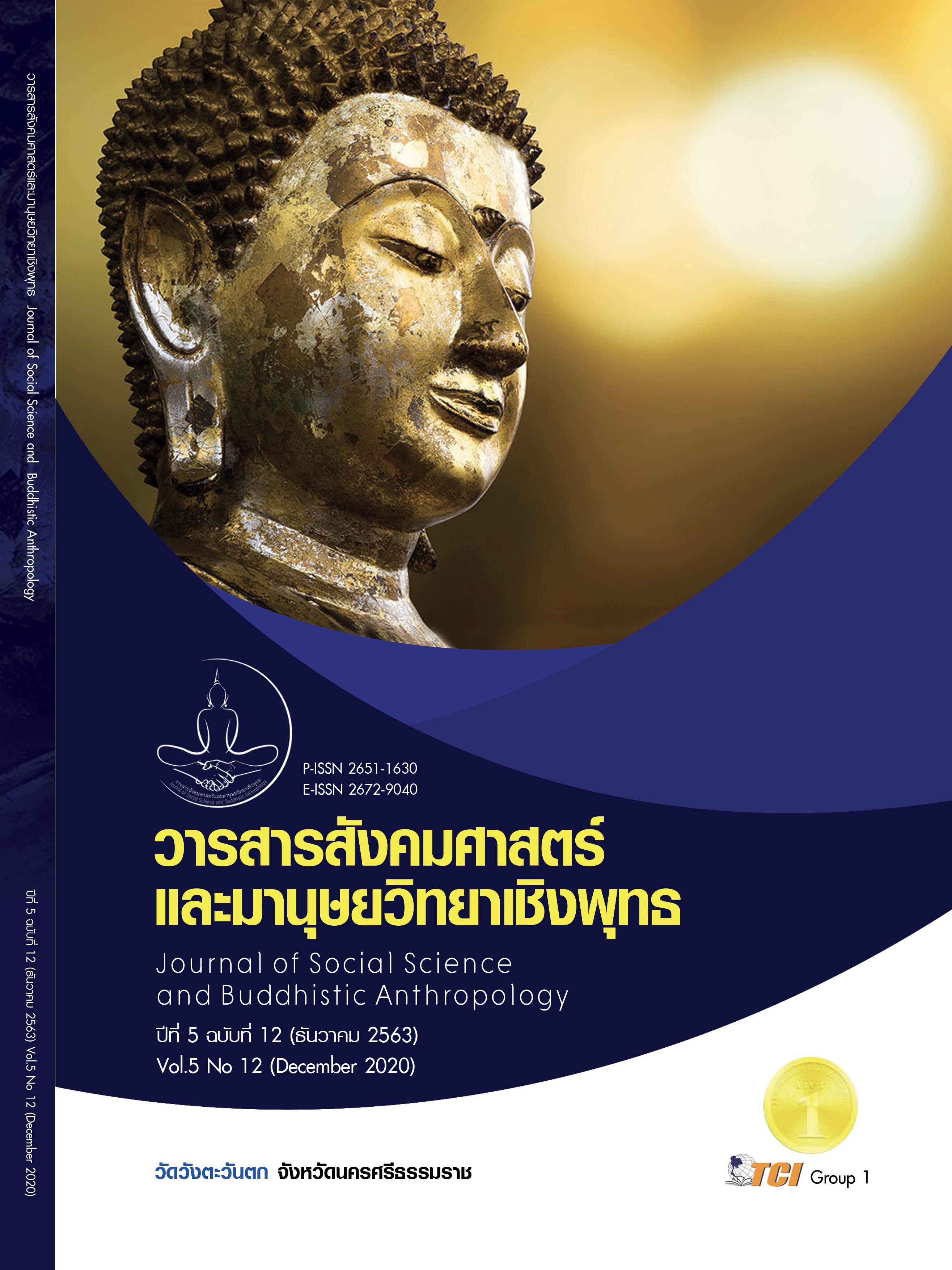THE NARRATIVES OF FAMILIES THROUGH "TAO-KUA" THE LOCAL THAI FOOD IN THE MAIN PROVINCE OF SONGKHLA
Keywords:
Narrative, Tao Kua, Intangible Cultural HeritageAbstract
The objectives of this research article were to study about the history of “Tao-Kua” families and heritage traditions among the people of Songkhla. Using qualitative research methods, the data was collected by in-depth interviews with two groups. Firstly, 12 people from families that had inherited the traditions of “Tao-Kua” through their ancestors, and the second group included 3 local specialists. A total of 15 people from Singhanakhon, Mueang Songkhla and Hat-Yai district in the Songkhla Province. Triangulate data analysis were used in this research. The research method involved using the concept of story-telling and local wisdom to explore the traditions of “Tao-Kua”. The research discovered that fast and effective logistics enabled the growth in the market of “Tao Kua”. Secondly, families that have inherited the traditions of “Tao-Kua” have passed their wisdom through at least four generations. Thirdly, 11 out of the 12 families have kept the traditional recipes and methods of cooking “Tao-Kua”, with only one family changing the method. Next, the research found that the method of production of “Tao-Kua” reflects the spirit of love for food and the cook. There are two characteristics with regards to passing the traditions of “Tao-Kua”, firstly there are families which pass traditions through their own generations, then others that inherit knowledge through different families. The traditional methods of making “Tao-Kua” have two distinct groups. The first group kept the traditional methods both in the process of making the ingredients and the way of eating, the second group changed the appearance and taste to match the lifestyle of the new generation. However, all groups still maintain the traditional identity of “Tao-Kua’s ingredient” along with the heritage of wisdom through generations. The inheritance of new generations have 3 styles. Firstly: except, secondly: not except and thirdly: not sure.
References
กองโภชนาการกรมอนามัย กระทรวงสาธารณสุข. (2544). ตารางแสดงคุณค่าทางโภชนาการของอาหารไทย. นนทบุรี: โรงพิมพ์องค์การทหารผ่านศึก.
กิตติพร ใจบุญ. (2559). มรดกภูมิปัญญาทางวัฒนธรรมของชาติ. กรุงเทพมหานคร: โรงพิมพ์องค์การสงเคราะห์ทหารผ่านศึกในพระบรมราชูปถัมภ์.
จินนภา นราดล และคณะ. (2554). อาหารพื้นบ้านจังหวัดสงขลา. ขอนแก่น: มหาวิทยาลัยขอนแก่น.
ฉลองรัฐ เฌอมาลย์ชลมารค. (2548). เรื่องเล่า (Narrative) และศาสตร์แห่งการเล่าเรื่อง (Narratology). ปทุมธานี: มหาวิทยาลัยรังสิต.
บุษกร เชี่ยวจินดากานต์. (2561). เทคนิคการวิจัยเชิงคุณภาพแบบกรณีศึกษา. ศิลปศาสตร์ปริทัศน์, 13(25), 112-120.
บุษกร อุตรภิชาติ และคณะ. (2560). คุณภาพทางจุลชีววิทยาของเต้าคั่วที่จำหน่ายในอำเภอป่าพะยอมและอำเภอเมือง จังหวัดพัทลุง. ใน การประชุมวิชาการระดับชาติ มหาวิทยาลัยทักษิณ ครั้งที่ 27 ประจำปี 2560 และการประชุมวิชาการระดับชาติด้านบริหารธุรกิจและเศรษฐศาสตร์ ครั้งที่ 3. มหาวิทยาลัยทักษิณ.
พิรมาลย์ บุญธรรม และคณะ. (2561). การสังเคราะห์องค์ความรู้ภูมิปัญญาอาหารท้องถิ่นในกลุ่มเมืองมรดกโลกทางวัฒนธรรม (สุโขทัย ศรีสัชนาลัยและกำแพงเพชร, พระนครศรีอยุธยา. กรุงเทพมหานคร: มหาวิทยาลัยสวนดุสิต.
รุจิระ บุนนาค. (2556). มรดกทางวัฒนธรรม. เรียกใช้เมื่อ 30 ธันวาคม 2563 จาก http://www.marutbunnag.com/article/417/
วงสวาท ปัทมาคม. (2539). อาหารไทย 4 ภาค. กรุงเทพมหานคร: นิตยสารหมอชาวบ้าน.
สุกัญญา ไหมเครือแก้ว. (2560). ภูมิปัญญาวัฒนธรรมอาหารท้องถิ่นและความสัมพันธ์เชิงพื้นที่ จังหวัดสุราษฎร์ธานี. วารสารวิจัยเพื่อการพัฒนาเชิงพื้นที่, 9(4), 274-296.
Guluzian, R. C. (2017). Making Inroads: China’s New Silk Road Initiative. The Cato Journal, 37(1), 135-148.









